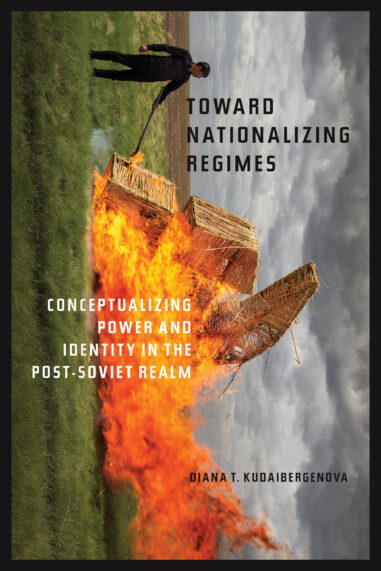
Hardcover $50.00
Request Exam or Desk Copy. Request Review Copy
Toward Nationalizing Regimes
Conceptualizing Power and Identity in the Post-Soviet Realm
Clearly and engagingly written, Kudaibergenova’s book balances its elite focus with a sprinkling of ethnographic set pieces from the field and a chapter examining how elite efforts are received among the Latvian and Kazakhstani publics. . . . Her approach is a useful one for political scientists to add to their toolbag as they continue to probe how the nation shapes politics in states around the world.

